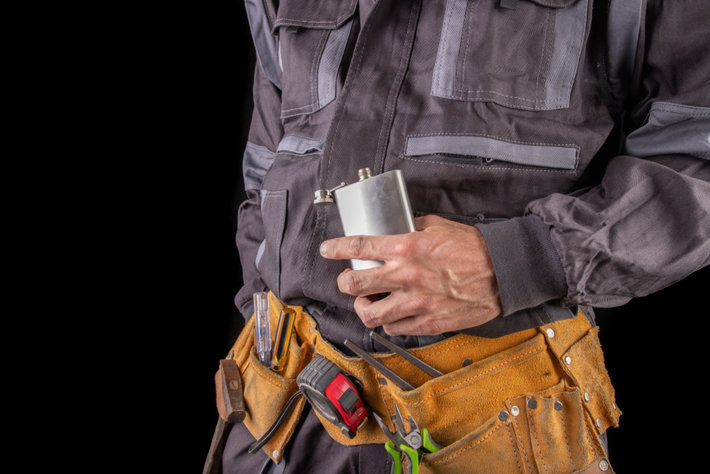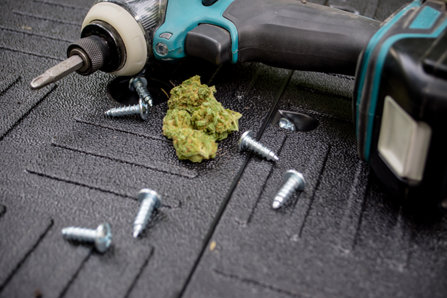One Industry’s Struggle with Addiction – How Can Employers Create a Sober Work Environment?

A recent article in U.S. News focused on the growing frequency of addiction in the construction industry. According to the article, construction workers are more likely than people in almost all other professions to misuse opioids, alcohol, cocaine, and marijuana.
The U.S. News article talked about a few different professions, citing research that indicated construction workers tend to use substances at slightly higher rates than most other work industries. The report also gave reasons for why this might be the case.
Why the construction industry? We know that addiction does not discriminate. It can affect anyone. But it can also equally not affect anyone. So why are people in construction more likely to be affected by drug addiction and alcohol misuse than workers in other industries?
The Data
The U.S. News article cited data from an October 30th publication in the journal Drug and Alcohol Dependence. That research paper published statistics on worker-admitted use of drugs for a few industries. In almost every category and with virtually every drug, construction workers admitted to the highest rates of substance use. On-site work injuries, a lack of job security, long work hours, physically demanding work, and a bevy of other factors were given as reasons why construction workers might use drugs with more frequency than workers in other industries.
According to the journal’s published research, substance abuse has a very harmful effect on construction workers, particularly as pertains to missing work which in turn increases their risk of losing their job. Quoting the research, “Among CTEW [construction trade/extraction workers], past-week unemployment and working for greater than three employers was associated with increased odds of marijuana and NPO [non-prescribed opiate] use.”
And touching on the missing work aspect: “Missing 1–2 days in the past month because the participant did not want to go into work was associated with increased odds for the use of marijuana, cocaine, and NPO use. Missing 3–5 days of work in the past month because sick or injured was associated with double the odds of using NPO.”

Construction workers are using substances in higher numbers than other industries. And as can be anticipated, it is hurting the workers. Looking at another data source, we can find similar information on substance abuse in the construction industry. An article at For Construction Pros touched on the percentages of substance abuse for different drugs in various work sectors. According to that article:
- Construction comes in at the third place, with 12.95 percent of construction workers using a substance of some kind.
- Getting more specific, construction comes in at second place for the most alcohol misuse by industry, with 16.02 percent of construction workers misusing alcohol.
- Construction comes in at first place for marijuana use, with 60.33 percent of construction workers using marijuana.
- Construction also comes in at first place for heroin use, with 4.42 percent of construction workers using heroin.
- Last but not least, construction also takes the first place for prescription pain reliever misuse, with 22.63 percent of construction workers admitting to self-medicating on pain drugs.
The misuse of drugs and alcohol among construction workers has gotten so bad that construction workers are overdosing and dying because of it. Massachusetts construction companies held state-wide work stoppages to find a remedy for the overdose problem among Massachusetts construction workers.
Quoting an article in AP News, “Construction workers represented roughly 25% of all fatal opioid overdoses among Massachusetts workers from 2011 to 2015, a state Department of Public Health report found last year. They’re also six times more likely to fatally overdose on opioids than other workers, according to the report.”
Construction companies in Massachusetts are working together to curb their health crisis. The New England Carpenters Benefit Funds, a construction labor union, began funding 90 day stays at a treatment center. So far, 25 Massachusetts construction workers have attended long-term treatment. It’s a start for Massachusetts, but there is still a lot of work that needs to be done to curb the state-wide problem.
Getting Help for an Addicted Loved One or Employee
If your loved one or employee is struggling with an addiction to drugs or alcohol, it is essential to ensure they get help at a qualified, residential drug and alcohol addiction treatment center. Such programs offer the best and safest services for helping people overcome drug addiction.
If your loved one is in the construction industry, it’s possible that they started taking opiates for physical pain, a common ailment that afflicts construction workers. If this is the case, be sure that the treatment center you send your loved one to also addresses their physical pain. There are alternatives in pain treatment that do not include opiate-based medicines.
Tackling a drug problem as a construction worker includes:
- Getting into a residential treatment program.
- Addressing the underlying issues that caused the individual to seek out drugs in the first place.
- Addressing physical pain problems in such a way that does not include the use of prescription opiates.
- Reentering the workforce, but doing so with the tools needed to stay clean and sober.
Danielle Ompad, an associate professor of epidemiology at the New York University College of Global Public Health, commented for the U.S. News article cited earlier. She said, “Don’t demonize people for using drugs. Helping these workers and others who are similarly situated will require a multifaceted approach, including screening and treatment of substance use as well as access to affordable acute and chronic pain management care.”
Kicking an opiate habit is no walk in the park. Even for construction workers, the tough and hardy men and women who build our homes and our places of work, opiate addiction is a severe condition. It can even be lethal. That’s why it is so essential to make sure that those who struggle with such a habit do get help for it. If you know someone who suffers from an addiction, whether they are an employee, family member, or a loved one, be sure they get into a residential treatment program as soon as possible.
Sources:
- https://www.usnews.com/news/health-news/articles/2019-10-30/construction-workers-at-very-high-odds-for-opioid-and-drug-abuse
- https://www.sciencedirect.com/science/article/abs/pii/S037687161930417X
- https://www.forconstructionpros.com/business/article/21077277/construction-one-of-the-top-professions-struggling-with-drug-abuse
- https://apnews.com/4a5e8617a8d84d758f2ef06289f1774f
